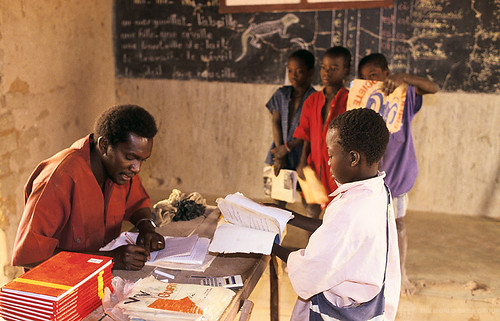By Aidan Mulkeen, Education Consultant, Africa Region
 The last two decades have seen a profound change in participation in education in sub-Saharan Africa. Enrollment in primary education has grown rapidly, there are now more children in school in Africa than at any other time in history, and most African children now enroll in school at some point.
The last two decades have seen a profound change in participation in education in sub-Saharan Africa. Enrollment in primary education has grown rapidly, there are now more children in school in Africa than at any other time in history, and most African children now enroll in school at some point.
This remarkable achievement has involved increases in the number of teachers and placed national systems for teacher provision and management under increased stress. Countries have struggled to recruit sufficient qualified teachers, to deploy them to where they are needed, and to provide the management and support structures to ensure that quality education is delivered.
For many countries in sub-Saharan Africa, the challenges of education expansion are changing. Following the rapid expansion of access to primary education, countries are now striving to complete the drive to universal primary education, consolidate the gains in primary education by improving the quality of learning, and to build on the successes in primary education by expanding access to secondary education.
As these new priorities emerge, it is an opportune time to review the policies that guide the provision of teachers. Teacher policy is a complex and multi-faceted area, and often evolves through historical events rather than systematic planning. The World Bank’s new book Teachers in Anglophone Africa: Issues in Teacher Supply, Training, and Management examines teacher policies and issues in eight cases in Anglophone countries in sub-Saharan Africa. Based on these case studies, it provides a synthesis of the major issues in teacher supply, deployment, training, management and finance.
This book is intended to underline the need for careful planning for the provision of teachers. Many of the difficulties in teacher provision can be anticipated and then ameliorated through appropriate policies. But teacher policies form a complex interconnected system, and policy development should be based on an overview of the issues, as policies to address one difficulty can easily have an adverse impact on another.
- Click here to access the full text version of Aidan Mulkeen’s book, Teachers in Anglophone Africa: Issues in Teacher Supply, Training, and Management
- For more on education in Africa, visit www.worldbank.org/afr/education
Photo credit: © Curt Carnemark / World Bank

Join the Conversation